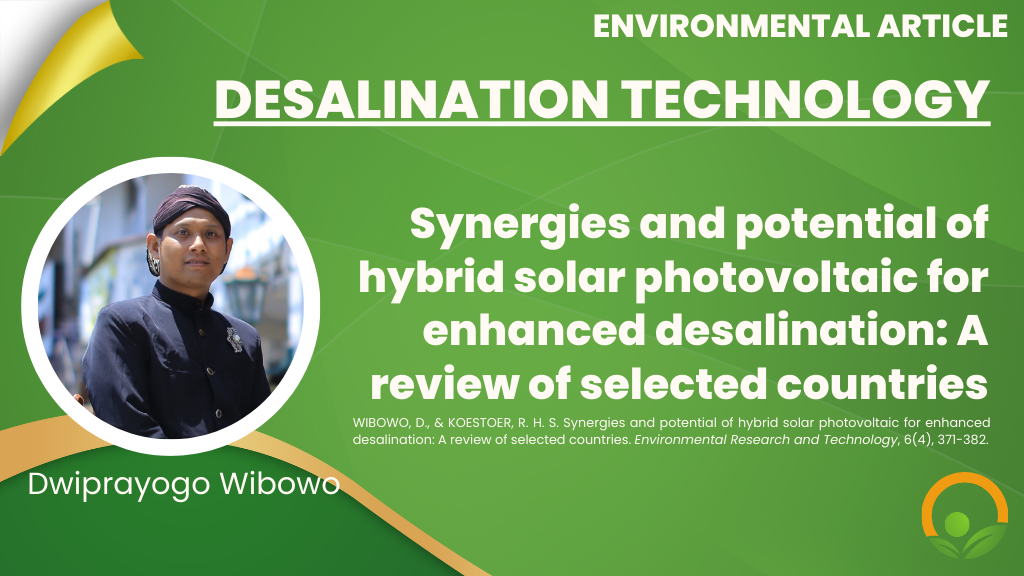
Synergies and potential of hybrid solar photovoltaic for enhanced desalination: A review of selected countries
In an effort to construct a desalination pilot plant, a study of several kinds of literature is needed to ensure Indonesia develops advanced and environmentally friendly desalination technology. This research aims to explore several research papers referenced in developing the desalination pilot plant to gain information on environmentally friendly and sustainable desalination technologies in selected countries such as Spain (Burriana), Mexico, Chile, the Philippines, and Iran (Kish Island), including in the Middle East and North Africa (MENA) region on the development of desalination technology for environmentally friendly and sustainable- based communities. This research used a systematic literature review (SLR) approach emphasizing secondary information from several studies based on selected countries to develop desalination technology. Each technology developed is examined for suitability with environmental conditions and desalination technology to be further applied in Indonesia. The main reason for building desalination plants in selected countries is to support sustainable development based on green energy and technology. They are combining desalination technology with photovoltaic (PV) electrical energy, which is a critical factor in promoting green technology through electrodialysis (ED) or reverse osmosis (RO) techniques. The developed desalination pilot plant can achieve 7–14 L/(m2.h) productivity at approximately 0.36–0.78 USD/m3. If implemented in Indonesia, it is necessary to prepare financial support to construct, operate, and maintain. Desalination technology in Indonesia should prioritize environmentally friendly technology. Indonesia's topographic region is a golden advantage to supporting sustainable green energy by utilizing PV-RO or PV-ED-RO to create fresh water from seawater.
Access the full text at the following link: https://dergipark.org.tr/en/pub/ert/issue/80655/1325106


